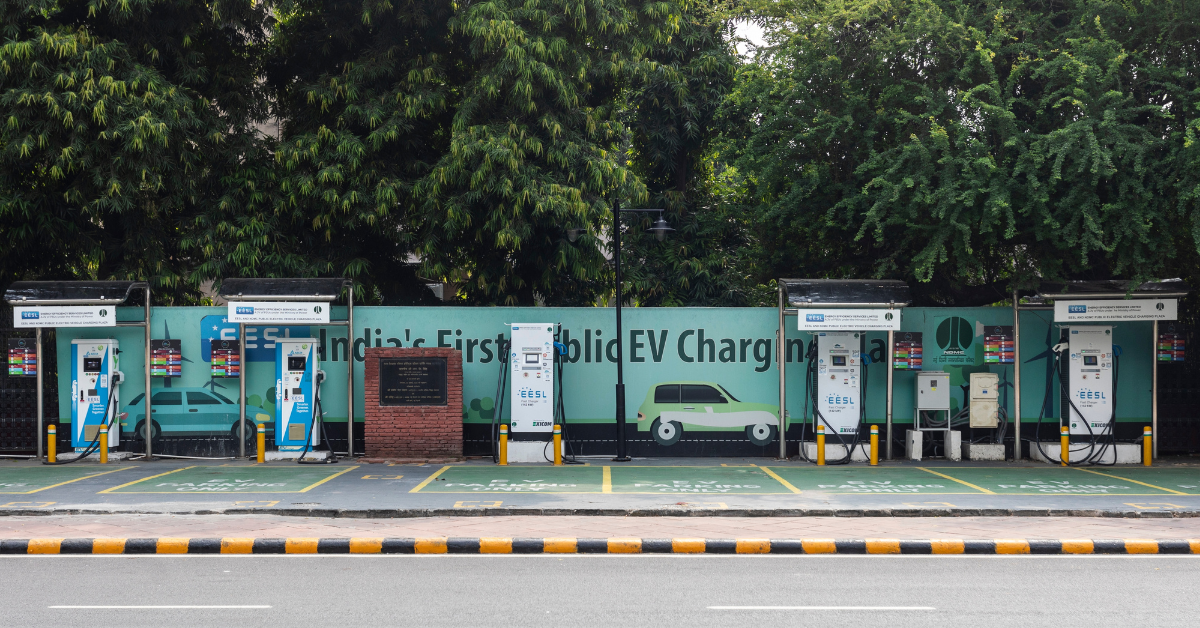The Delhi government has come out with a three-year action plan for setting up EV battery charging and swapping infrastructure
Delhi aims to have one public charging point for every 15 EVs by 2024, spread evenly across the state and accessible within 3 km travel from anywhere in Delhi
As per the report, Delhi currently has at least 2,452 charging points spread across 1,919 locations and 234 swapping stations
The Delhi government has unveiled a three-year action plan for electric vehicle (EV) battery charging and swapping infrastructure under which it plans to install around 18,000 public and semi-public EV charging points by 2024.
Delhi aims to have one public charging point for every 15 EVs by 2024, spread evenly across the state and accessible within 3 km travel from anywhere in Delhi, the report titled ‘Charging/swapping infrastructure action plan for Delhi 2022-25’, released by the Department of Transport, Delhi government, said.
“Taking into account the EV penetration and public charging needs of different vehicle segments and use cases, a charger to EV ratio of 1:15 translates to around 18,000 charging points would be required to cater for the need for (25% of total vehicle registrations) electric vehicles in the horizon year of 2024,” it said.
As per the report, Delhi currently has at least 2,452 charging points spread across 1,919 locations and 234 swapping stations.
This three-year action plan comes two years after the launch of Delhi’s EV policy.
“Since the launch of the Delhi EV policy, EV sales in Delhi have shown a remarkable growth with EVs averaging more than 10% of the monthly sales in 2022,” Transport Minister Kailash Gahlot said in a statement.
“The action plan for deployment of EV charging infrastructure is a statement of intent and the approach to be followed by the Government of NCT (National Capital Territory) of Delhi over the next three years to ensure that the pace of installing charging and swapping stations compliments the pace of EV adoption in the city,” he added.
As per Gahlot, in the last two years, Delhi has registered sales of over 62,000 EVs, with two-wheeler sales contributing 42% to the overall sales. Besides, the Delhi government is also working towards electrifying the public transportation, with150 ebuses already running on the road and the national capital is set to have 2,000 ebuses by the end of 2023.
A key reason for the success of the Delhi EV policy is the steps taken by the state government to ensure access to affordable charging and swapping stations across Delhi, claimed Gahlot.
The Delhi EV policy was notified on August 7, 2020. To drive large-scale adoption of EVs and maximise reduction of vehicle pollution, the policy focused at incentivising the purchase and use of electric two-wheelers and supporting the electrification of public/shared transport and also goods carriers.
The policy targets 25% of all new vehicle registrations by 2024 to be EVs.The projection model uses the compound annual growth rate (CAGR) in new vehicle registrations for 2014-2019 to project that EV sales would achieve the target of having 25% EVs by 2024.
The three-year action plan aims to develop a unified strategy for deploying EV charging stations (EVCS) and battery swapping facilities (BSF) in the NCT of Delhi. It will provide an integrated action plan for all stakeholder agencies to maintain synergy in deploying EV charging/battery swapping facilities in the NCT of Delhi, the report said.
The approach to install the charging and swapping stations would include identifying EV charging or swapping use cases based on charging requirements for various market segments, such as passenger vehicles, fleet owners for passenger and freight, delivery service providers, among others.
Besides, it would also consider identifying priority vehicle segments, mapping EV charging and swapping use cases to parking patterns, and identifying locations with high dwell time for such vehicles.
The Delhi government’s action plan comes at a time when all the state governments, along with the Centre, are promoting EVs and have introduced new policies to boost their adoption. However, EV charging and swapping infrastructure still lags behind in comparison to the amount of vehicles on road.
As per the Ministry of Heavy Industries’ July report, Delhi had 1.56 Lakh EVs, while the total number of such vehicles in the country stood at 13.34 Lakh units.
India’s total EV industry is expected to expand at a CAGR of 94.4% from 2021 to 2030, according to a report.










